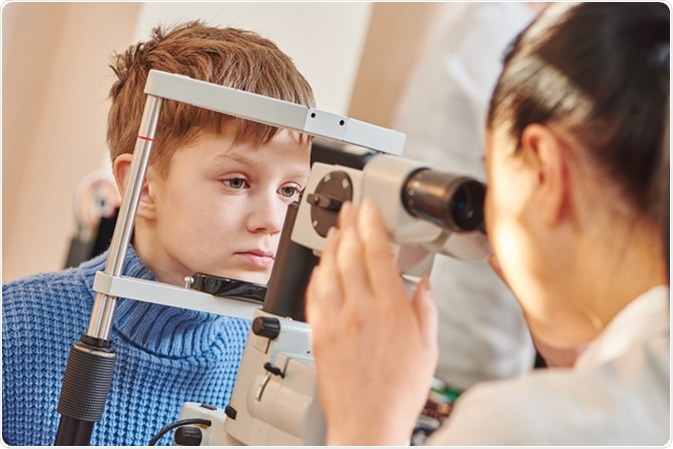Pediatrics in Andalusia: Compassionate Care for Growing Family Members
Pediatrics in Andalusia: Compassionate Care for Growing Family Members
Blog Article
Is Refractive Surgical Treatment Right for You? Elements to Think About for Better Eyecare
In the world of eye treatment, the decision to go through refractive surgical treatment is a substantial one that requires thoughtful factor to consider. From the ins and outs of one's ocular wellness to the intricacies of individual expectations and day-to-day routines, each facet holds significance in the wider landscape of refractive surgical treatment candidacy.
Eye Health Evaluation
When thinking about refractive surgery, a detailed eye wellness examination is important to evaluate the suitability of the treatment for every individual. cardiologist andalusia. This evaluation entails a collection of exams and tests performed by an eye treatment professional to determine the total health and wellness of the eyes, the presence of any kind of underlying problems, and the security of the refractive error
Throughout the examination, various variables are considered, such as the client's case history, present eye prescription, corneal thickness, student size, and tear movie quality. These analyses help to recognize any type of contraindications to refractive surgery, such as corneal problems, cataracts, or without treatment eye infections. Additionally, the examination helps to take care of individual assumptions concerning the possible outcomes of the surgical procedure based on their special eye features.
Eventually, the eye health and wellness analysis is important in making sure the safety and efficiency of refractive surgery, as it gives valuable insights into the individual's eye health and wellness standing and helps determine the most suitable treatment options for accomplishing optimum aesthetic end results. (eye doctors in andalusia)
Way Of Life Evaluation
A complete way of life assessment is important in establishing the suitability of refractive surgical procedure for an individual's visual correction needs. Way of life elements such as occupation, hobbies, and day-to-day tasks play a critical duty in the decision-making procedure relating to refractive surgical treatment. Individuals with professions that involve a high level of physical activity or exposure to ecological elements may have various aesthetic requirements contrasted to those with inactive desk work. Recognizing exactly how a person's way of living might impact their vision post-surgery is essential for taking care of expectations and guaranteeing optimal end results.
Furthermore, way of life behaviors such as sports engagement, exterior tasks, or perhaps skincare routines can affect the recovery process and general success of refractive surgical treatment. For example, people who engage in get in touch with sporting activities may need to take extra precautions to secure their eyes throughout the recovery period. Additionally, individuals with comprehensive sun direct exposure might call for additional post-operative care to protect against problems. By carrying out a thorough lifestyle assessment, eye treatment specialists can customize their referrals and treatment strategies to satisfy the distinct demands of each individual, eventually leading to improved aesthetic results and complete satisfaction.
Assumption Positioning

Setting realistic assumptions includes complete pre-operative discussions between the ophthalmologist and the patient. The surgeon should transparently connect the potential dangers, benefits, and limitations of the treatment (eye center andalusia). Patients need to comprehend that while many people accomplish 20/20 vision or far better adhering to refractive surgery, some might still require glasses for particular activities like analysis or driving at night. Managing these assumptions assists avoid disappointment and discontentment post-surgery, leading to an extra positive general experience for the patient.
Risk Analysis

Factors that might raise the risk of complications consist of age, certain clinical conditions like autoimmune conditions, unsteady vision prescription, thin corneas, and impractical patient expectations. Furthermore, choosing a experienced and experienced surgeon, adhering to pre and post-operative care guidelines faithfully, and divulging any type of appropriate case history can assist minimize dangers.
To lessen the chance of problems, ophthalmologists perform complete pre-operative analyses to determine any type of contraindications to surgical treatment. They additionally discuss the Get the facts possible risks and advantages with patients during the assessment process. By involving in open communication and shared decision-making, both the individual and the eye doctor can collaborate to identify if refractive surgery is the ideal option based on individual threat profiles and desired results.
Assessment Significance
Thinking about the vital role of informed decision-making in examining threats and prospective difficulties in refractive surgical procedure, the appointment process holds considerable significance in guiding clients towards optimum results. Throughout the consultation, the ophthalmologist reviews the patient's eye health, refractive mistakes, and overall suitability for surgical treatment. This preliminary evaluation is crucial in establishing one of the most appropriate treatment for each and every person, considering elements such as corneal thickness, student size, and existing eye conditions.
Furthermore, the consultation functions as a possibility for clients to review their expectations, issues, and any questions they may have concerning the surgery. Clear communication in between the surgeon and the patient is important to make certain sensible expectations and a comprehensive understanding of the possible dangers and advantages involved.
Furthermore, the assessment permits the doctor to explain the different medical options available, their corresponding end results, and the post-operative care called for. This extensive discussion encourages individuals to make knowledgeable decisions regarding their eye care, bring about much better fulfillment and outcomes post-surgery.
Final Thought
Finally, people thinking about refractive surgical treatment should undergo an extensive eye wellness examination, analyze their way of life behaviors, align their expectations with potential end results, examine the connected threats, and prioritize examinations with eye care specialists. These variables play a vital function in determining the suitability of refractive surgical procedure for each and every individual, guaranteeing ideal end results and satisfaction with the treatment.
Patients considering refractive surgical procedure often have high expectations concerning the outcomes, anticipating neurologist andalusia perfect vision without the need for glasses or contact lenses. While refractive surgical treatment can substantially enhance vision and decrease dependency on aesthetic help, it is crucial for people to comprehend that results might differ based on individual factors such as the degree of refractive mistake, corneal density, and total eye health.
By involving in open interaction and shared decision-making, both the eye doctor and the individual can work with each other to establish if refractive surgery is the appropriate selection based on specific danger accounts and preferred end results.
Taking into consideration the essential role of educated decision-making in analyzing risks and prospective complications in refractive surgery, the examination procedure holds substantial value in assisting weblink people in the direction of optimal outcomes. During the appointment, the eye doctor evaluates the individual's eye health and wellness, refractive errors, and overall suitability for surgical procedure.
Report this page